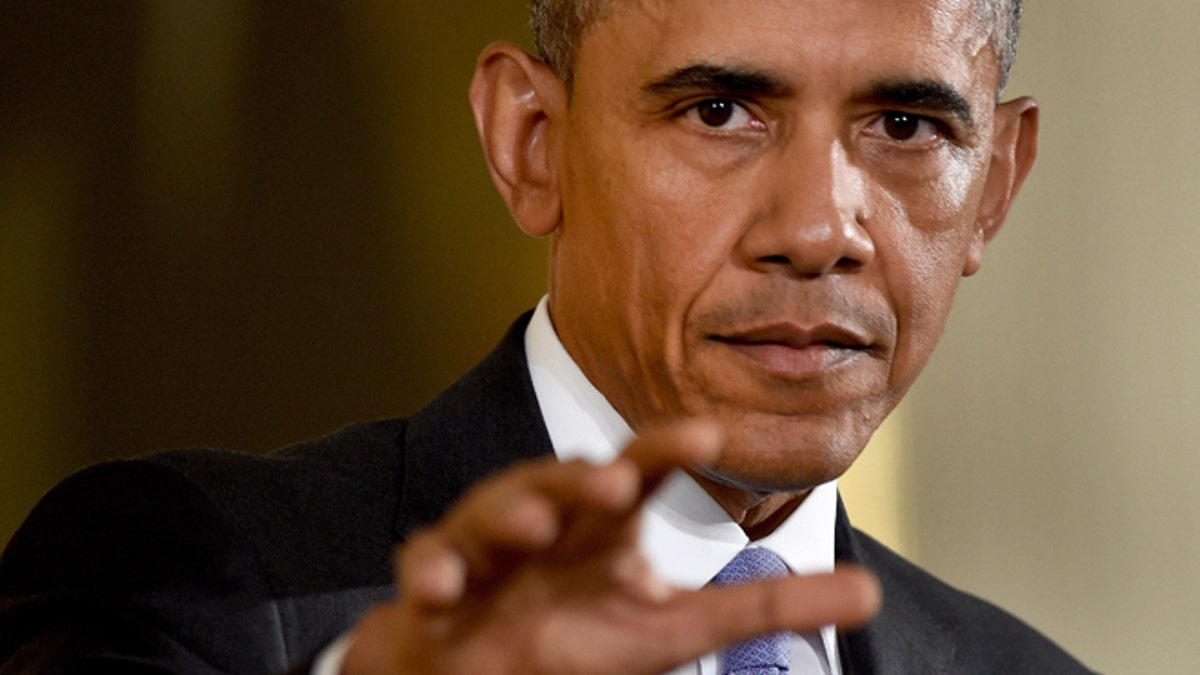
July 15, 2015: President Obama answers questions about the Iran nuclear deal during a news conference in the East Room of the White House in Washington. (AP Photo/Susan Walsh)
Tuesday will mark five years since President Obama’s signing of the Dodd-Frank law, the most sweeping rewrite of the country’s financial laws since the New Deal. Obama told the country that the legislation would “lift our economy.” The statute itself declared that it would “end too big to fail” and “promote financial stability.”
None of that has come to pass. Too-big-to-fail institutions have not disappeared. Big banks are bigger, small banks are fewer, and the financial system is less stable. Meanwhile, the economy remains in the doldrums.
Dodd-Frank was based on the premise that the financial crisis was the result of deregulation. Yet George Mason University’s Mercatus Center reports that regulatory restrictions on financial services grew every year between 1999-2008. It wasn’t deregulation that caused the crisis, it was dumb regulation.
Among the dumbest were Washington’s affordable-housing mandates, beginning in 1977, that led to a loosening of underwriting standards and put people into homes they couldn’t afford. The Federal Reserve played its part in the 2008 financial crisis by keeping interest rates too low for too long, inflating the housing bubble. Washington not only failed to prevent the crisis, it led us into it.
Dodd-Frank was supposedly aimed at Wall Street, but it hit Main Street hard. Community financial institutions, which make the bulk of small business loans, are overwhelmed by the law’s complexity. Government figures indicate that the country is losing on average one community bank or credit union a day.








































